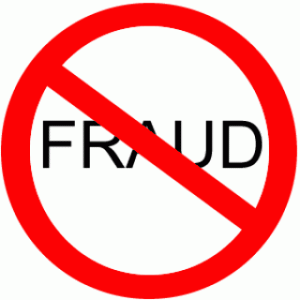What is causing the billion-dollar cost of fraud? Despite the Fraud Prevention Initiatives like the Affordable Care Act, the federal government admits that a staggering $60 billion is stolen from taxpayers through Medicare scams every year. Some experts believe the number is more than twice that.
Fraudulent pharmacies, clinics and medical supply companies seem to pop up like dandelions. Former car mechanics, bus boys and clerks can be involved in individual scams, taking tens of millions of dollars every year from the government program meant to provide healthcare to the nation’s elderly. The victims of the schemes? American taxpayers.
It’s simple because Medicare is based on trust. When the program was introduced in the 1960s, there was an assumption that no one would try to defraud a system created to take care of the elderly. The government was required to reimburse vendors in less than 30 days. In 99.9 percent of the cases, Medicare “auto-adjudicates” claims within 30 days. In other words, the computer decides if the right codes are in the right boxes. If they are, the checks are automatically sent.
“That means that if you check the right boxes and fill out the right forms, you’re going to get paid,” said Kirk Ogrosky, who until recently was the federal prosecutor in charge of all criminal Medicare fraud at the Department of Justice.
Unlike credit card companies that stop payments as soon as a second suspicious charge is made, Medicare is slow to respond even when people call to tell them about fraud. Judge Marshall Ader, who sat on the Florida state bench for decades, said he even had trouble getting Medicare to pay attention. When he saw that Medicare was being billed for two prosthetic legs using his Medicare number, he was enraged.
“I saw that there was a report for some prosthesis that I, of course, didn’t use and had never used,” said Ader, who has no need for prosthesis. “The bill was something like $30,000. I called Medicare, the investigative fraud unit …Nobody seemed to care,” he said. It took over a year to sort out the situation.
Plenty of criminals, however, are arrested by the FBI and the Office of Inspector General. U.S. Attorney Jeffrey Sloman spearheads prosecutions in South Florida which has become a focal point of Medicare scams. He believes there are cases pending that are worth “over a billion dollars… probably…two billion.”
Despite the fact that the South Florida strike force prosecuted approximately 170 cases last year, all their hard work hardly makes a dent.
There is overwhelming evidence of healthcare fraud and abuse, yet again and again, Medicare pays. Meanwhile, the vicious cycle continues: law enforcement continues to try to chase down fraudulent activity and the system continues to pump out the checks to the perpetrators. Evidently, a lot of time and effort is still necessary to bridge the disconnect between the knowledge that the fraud and abuse is prevalent, that initiatives and legislation are in existence to stop the abuse and the actual cessation and permanent prevention of fraud. In the meantime, providers themselves need to become more attentive and vigilant as they strive to maintain healthcare compliance possibly by implementing their own healthcare financial management and anti-fraud initiatives.
An excellent illustration of the billion dollar cost of fraud is the following link to a CBS new story: http://www.cbsnews.com/stories/2009/10/23/60minutes/main5414390.shtml







